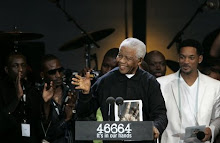Justices revived excessive-force case against a cop.
A little-noticed U.S. Supreme Court ruling from May could give an unexpected boost to alleged victims of excessive force by police in their efforts to hold law enforcement officers accountable.
In the aftermath of recent police shootings, including the death of Michael Brown in Ferguson, Mo., lawyers have generally viewed high court precedents as obstacles that only benefit police.
But Tolan v. Cotton, a brief unsigned opinion issued on May 5, could point the other way, making it easier for alleged victims to fend off summary dismissal of their civil rights lawsuits against police.
Tolan admonished lower court judges that when police in such cases seek to dismiss lawsuits against them, disputed facts and inferences must be viewed in a light most favorable to the citizen making the claim.
"Courts may not resolve genuine disputes of fact in favor of the party seeking summary judgment," the high court ruled, adding that "a judge's function at summary judgment is not to weigh the evidence and determine the truth of the matter, but to determine whether there is a genuine issue for trial."
Since the facts of episodes like those involving Brown and Eric Garner are often in dispute — even when there is video evidence — the Tolan decision could give individuals claiming civil rights violations (under 42 U.S.C. 1983) a better chance of getting past summary dismissal motions. Tolan has already been invoked in more than 500 federal cases since May.
Two weeks after Tolan was issued, the Supreme Court itself cited the ruling in remanding Thomas v. Nugent, a suit brought by the family of a Louisiana man who died after a police officer repeatedly used a Taser on him.
Two weeks after Tolan was issued, the Supreme Court itself cited the ruling in remanding Thomas v. Nugent, a suit brought by the family of a Louisiana man who died after a police officer repeatedly used a Taser on him.
 "Tolan resonates today in many ways. We were thrilled when the court ruled as it did," said Christina Swarns (left), litigation director of the NAACP Legal Defense and Educational Fund, which filed a brief in the case. "It was a reminder to courts that they can't supplant the role of the jury, and they can't put a thumb on the scale in favor of the state."
"Tolan resonates today in many ways. We were thrilled when the court ruled as it did," said Christina Swarns (left), litigation director of the NAACP Legal Defense and Educational Fund, which filed a brief in the case. "It was a reminder to courts that they can't supplant the role of the jury, and they can't put a thumb on the scale in favor of the state." The decision stemmed from a widely publicized suit brought by Robbie Tolan (left), the son of Major League Baseball player Bobby Tolan. On New Year's Eve in 2008, Bellaire, Texas, police officer Jeffrey Cotton shot the younger Tolan in his parents' driveway. Police were responding to a mistaken report of a stolen car. After Cotton pushed Tolan's mother up against the garage door, Robbie Tolan told him to leave his mother alone. Apparently without warning, Cotton shot Tolan three times, leaving him alive but with permanent injuries.
The decision stemmed from a widely publicized suit brought by Robbie Tolan (left), the son of Major League Baseball player Bobby Tolan. On New Year's Eve in 2008, Bellaire, Texas, police officer Jeffrey Cotton shot the younger Tolan in his parents' driveway. Police were responding to a mistaken report of a stolen car. After Cotton pushed Tolan's mother up against the garage door, Robbie Tolan told him to leave his mother alone. Apparently without warning, Cotton shot Tolan three times, leaving him alive but with permanent injuries.
Lower courts dismissed Tolan's Section 1983 suit, with the U.S. Court of Appeals for the Fifth Circuit ruling that Cotton deserved "qualified immunity" because his actions did not violate a "clearly established right."
But the Supreme Court said that in ruling that way, the Fifth Circuit improperly viewed the facts as favoring Cotton, the officer. "The court should have acknowledged and credited Tolan's evidence," the high court said, even though it recognized that "the witnesses on both sides come to this case with their own perceptions, recollections, and even potential biases."
Because of the Supreme Court's decision, a new trial in Tolan's case has been set for September. Florida civil rights lawyer Benjamin Crump asked the trial court in Houston in September to be recognized as Tolan's new lawyer. Crump also represents Michael Brown's family in Missouri, as well as the family of Tamir Rice, a 12-year-old by shot and killed by a Cleveland police officer last month.
Cotton's lawyers opposed Crump's motion, claiming he would ignore agreements made during prior proceedings in the case. The trial court accepted Crump's representation. Crump did not respond to a request for comment.
Police who are accused of civil rights violations almost always seek summary dismissal of the claim, said Martin Siegel of the Law Offices of Martin J. Siegel in Houston, who brought the Tolan case to the Supreme Court. "But Tolanreminds lower courts that the summary-judgment rules don't change just because a citizen sues an officer for excessive force."
The 11-page decision marked the first time in 10 years the court had ruled against police claiming qualified immunity from suit in a Section 1983 case.
Justice Samuel Alito Jr., joined by Justice Antonin Scalia, wrote a concurrence criticizing the court for engaging in mere "error correction." But Alito said, "I agree that there are genuine issues of material fact and that this is a case in which summary judgment should not have been granted."
"The decision surprised us," said Eric Del Pozo, a lawyer at Jenner & Block who worked on the Legal Defense Fund's brief. "The court has protected the free speech and religious rights of corporations and requires a warrant before police can scan the call log of an arrestee's cellphone or attach a GPS device to someone's car," Del Pozo said. "Yet, for whatever reason, the court has been less solicitous of claims to civil rights infractions in money damages suits. InTolan, at least, the pendulum swung back a bit in the opposite direction."








